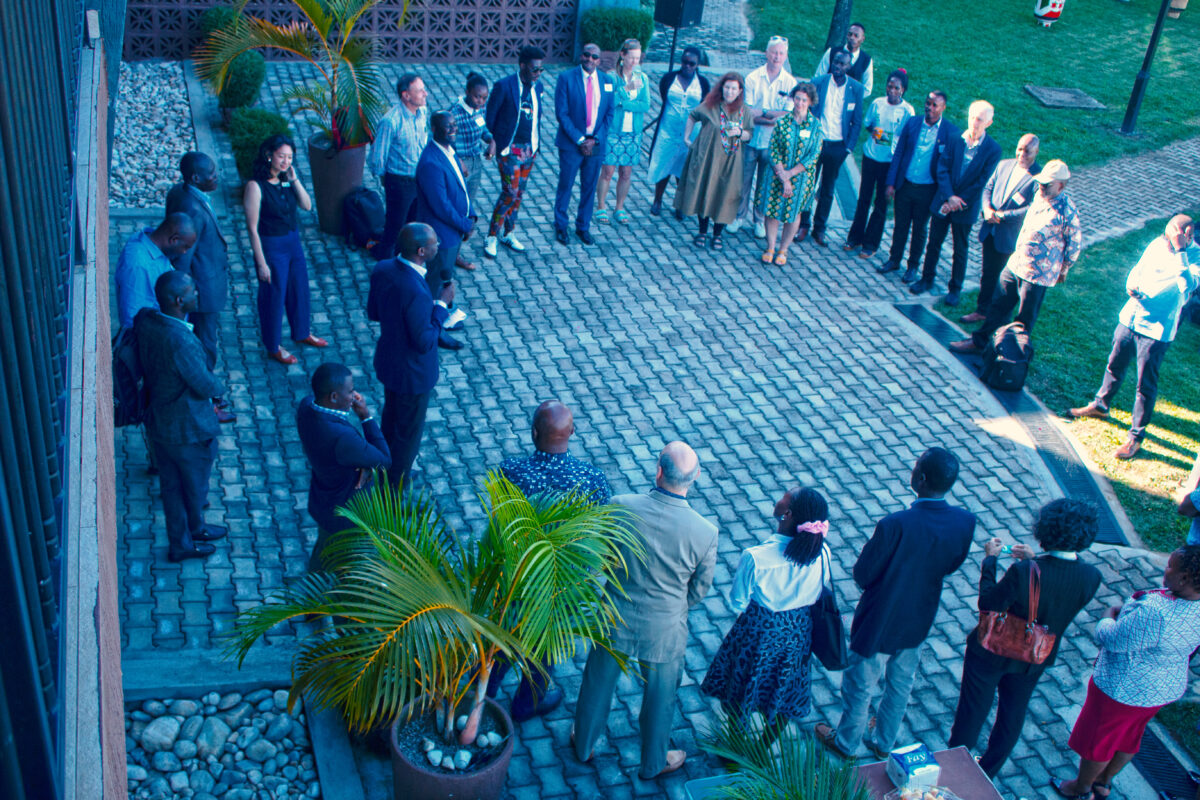JRS Biodiversity Foundation has been instrumental in advancing critical biodiversity research, conservation, and capacity-building efforts across sub-Saharan Africa. Each spring JRS Trustees gather in Africa to engage with grantees and local partners. On May 14, 2025 the Trustees met in Entebbe, Uganda to hear from seven East African grantees who showcased impactful projects that share common themes of data collection, knowledge expansion, capacity building, and advocacy for conservation policy. The panel presentations were followed by an enjoyable and productive networking reception.
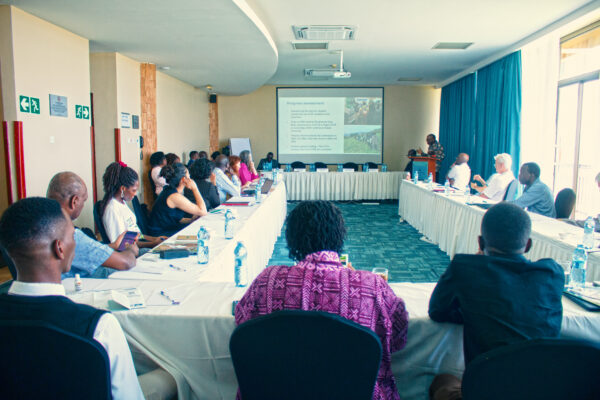
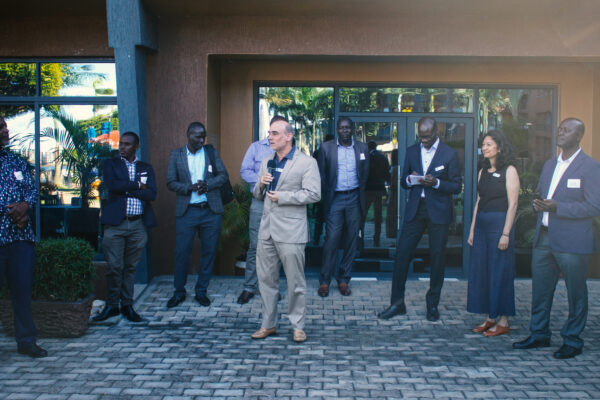

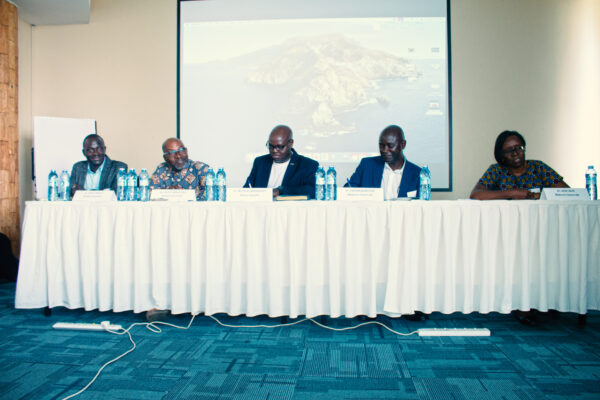
Panel of Uganda-based JRS grantees from Kabale University (Dr. Denis Okello and Dr. Julius Arinaitwe), NatureUganda (Dr. Mathias Behangana) and Makerere University (Dr. Yazidhi Bamutaze and Dr. Anne Akol) (photo / A. Aijuka)The grantee presentations included:
Protecting Wetland Biodiversity – Dr. Denis Okello and Dr. Julius Arinaitwe
Kabale University is leading efforts to protect papyrus wetland biodiversity in Uganda through the SEBU project. The project has identified the top five most important papyrus wetland sites out of 20 survey sites, using a comprehensive approach that includes:
- Taxonomic assessment of birds, reptiles, and amphibians
- Implementation of the Key Biodiversity Areas (KBA) approach
- Data contribution to GBIF and the National Biodiversity Data Bank
- Student capacity building with nine MSc students (six completed)
The project aims to advocate for the inclusion of key sites on Uganda’s 30 by 30 protected areas list and publish findings in peer-reviewed journals.
Herpetology Research – Dr. Mathias Behangana
NatureUganda is building capacity in herpetology through field training and applied research in remote ecosystems of Uganda. The project has:
- Trained 10 MSc students and 30+ research assistants
- Collected 53,610+ geo-referenced species records of amphibians and reptiles
- Validated 1,777 records for publication on GBIF
- Identified 5 cryptic species with potential for new species discoveries
- Built a network of 165 members on a Herpetology Sighting WhatsApp group
- Engaged university branches across Uganda (Busitema, IUIU, Gulu, MUNI, and Mbarara)
Pollination Research – Dr. Anne Akol
Makerere University‘s beeDIP Project (2020-2023) has made significant strides to advance pollinator research by:
- Expanding bee occurrence records from 1,912 to ~6,400
- Increasing documented species from 137 to 152 across 52 genera
- Developing identification tools and valuation frameworks for pollinators
- Building capacity through 3 MSc and 3 BSc graduates
- Creating a specialized website (https://beedip.mak.ac.ug) and identification tools
Knowledge Sharing & Capacity Building GORILLA Conference Series – Dr. Yazidhi Bamutaze
Makerere University‘s GORILLA conference series has:
- Hosted three international conferences (two supported by JRS)
- Conducted six training sessions for over 150 early career scholars n diverse disciplines
- Enhanced skills in data analysis and scientific writing
- Increased publication rates among young scientists
- Created specialized hackathon products and platforms
- Improved thesis completion rates through mentorship and networking
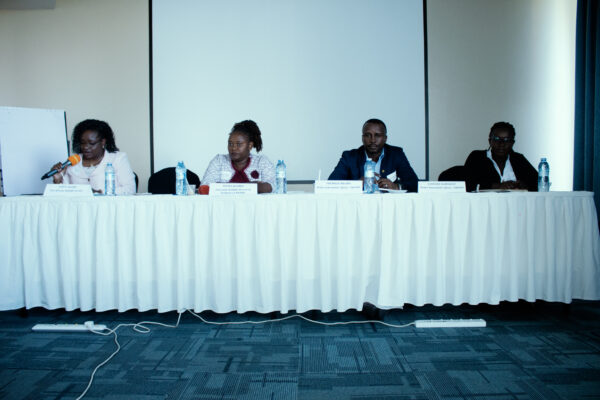
Advocacy & Policy Impact – Nancy Ogonje
East African Wild Life Society (EAWLS) champions evidence-based advocacy, outreach and conservation projects in Kenya, Tanzania, and Uganda, with:
- Nearly 70 years of operation as the “Voice of Conservation in East Africa”
- A focus on combating biodiversity loss through addressing climate change, pollution, deforestation, and governance issues
- Effective advocacy paths and tools including policy development, training key officials, environmental campaigns, stakeholder forums and selective litigation
- Key achievements including securing the protection of Bugoma Forest Reserve, expanding the habitat for black rhinos, and working to designate Lake Ol Bolossat as Kenya’s 7th Ramsar site
- Opportunities for collaboration in creating open-access data portals and facilitating scientist-policymaker integration
Mountain Ecosystems Research – Neema Kilimba
TAWIRI‘s project on invertebrates in alpine and montane forest ecosystems has:
- Conducted baseline wildlife surveys on Mt. Kilimanjaro, Mt. Kenya, and Mt. Rwenzori
- Documented elevation gradients of bee species from 800m to 4452m
- Rediscovered rare species like Nebrioporus kilimanjarensis
- Described new species including Afrodialictus afronivalis
- Created pocket guides, scientific papers, and citizen science websites
- Built capacity for local researchers
Science Communication – Fredrick Mugira, Leonard Namukasa and Andrew Aijuka
Water Journalists Africa (WJA-InfoNile) is bridging the gap between scientists, journalists, and the public through:
- Two 9-month training programs connecting journalists with scientific researchers to disseminate biodiversity information
- Production of 7 multimedia science stories about freshwater biodiversity and the benefits of wetlands
- Creation of the NileWell platform connecting 500+ journalists with 250+ scientists
- Community story exhibitions to share research and reports with local stakeholders
- Science communication initiatives with high school students
- Activist-journalist partnerships that have trained 34 activists across 2 cohorts
- The #EverydayNile project visualizing water and biodiversity stories

